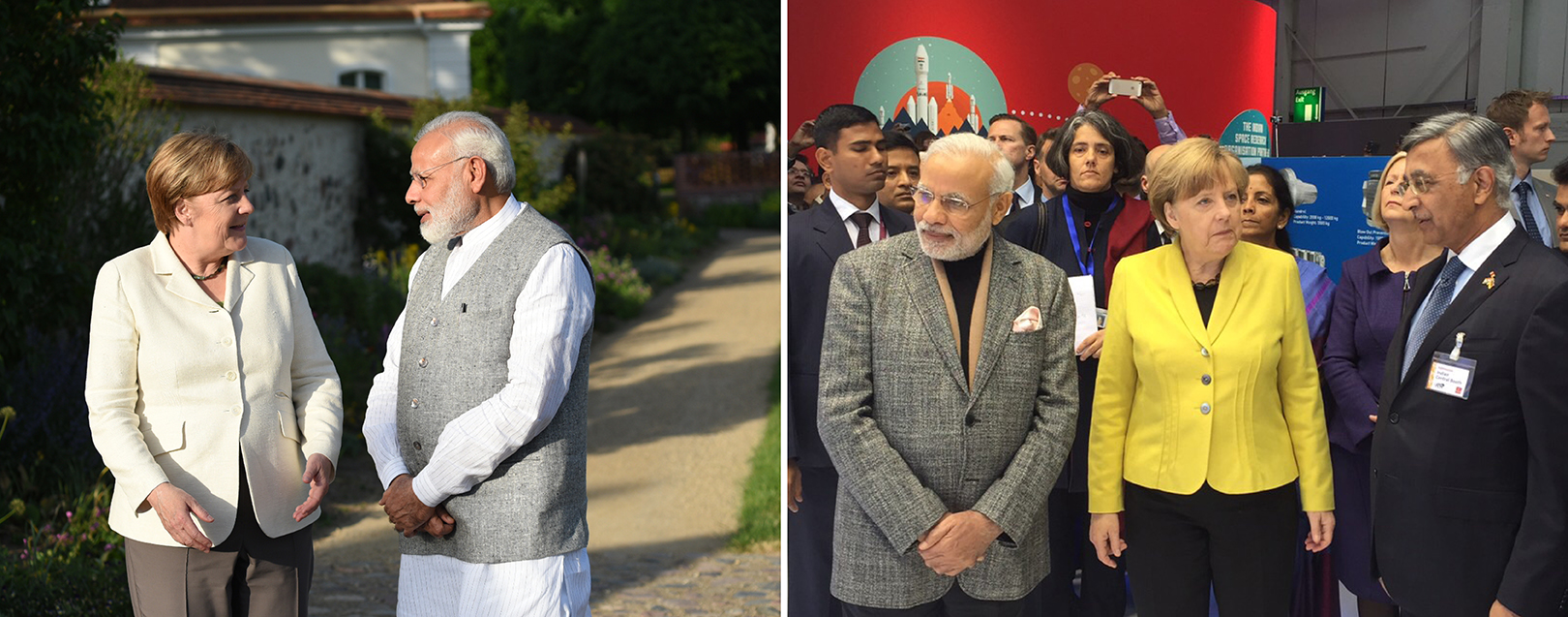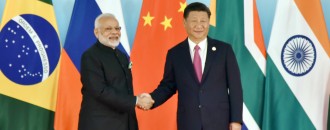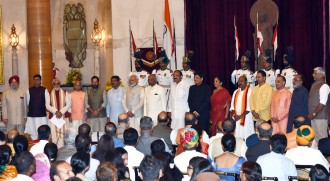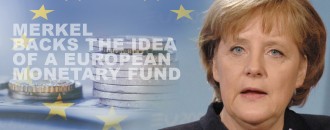
‘India as an attractive investment proposition is still a work-in-progress’, Gopalan, Indo-German Chamber of Commerce
by Sheela Mamidenna
The Indo-German relationship dates to several millennia. Economists have used the phrase, longue duree to describe the ties between the two. In FY2017, the Indo-German bilateral trade was over $18.79 billion. In fact, Germany is India 7th largest exports destination and India is Germany’s 24th largest exports market.
Concurringly, in May 2017, Prime Minister Modi during his speech at the Indo-German Business Summit in Berlin said, “There is tremendous potential in India-Germany economic collaboration. Our economic partnership is still below its full potential. To enhance this, we, in India, are ready with open arms to welcome German companies. With a view to helping the German companies, we have put in place a fast-track mechanism. Several issues have already been resolved through this mechanism. We are doing it sincerely because we value German participation a lot…”
In a recent interaction with The Dollar Business, T.R. Gopalan, Regional Director - Chennai, Indo-German Chamber of Commerce, spoke about the bilateral relationship between the two super powers. He also stressed on the views of German businesses in India and the effect of the recent policy changes that the Indian government has brought about. Gopalan reveals candidly to The Dollar Business the views of Germany.
TDB: Tell us more about how your trade body helps Indian businesses set up shop in Germany and vice versa.
TRG: The Federation of Chambers of Commerce in Germany is a unique institution in that similar set-up is hardly to be seen in other countries. Supported by the German business and industry, and marginally patronized by the Federal Government, the Federation has two major divisions: IHKs (domestic chambers) and AHKs (bi-lateral foreign chambers in host countries, such as India, China, USA etc). The Indo-German Chamber of Commerce was established in India more than six decades ago and has been active in the promotion of bilateral industrial and investment relations between India and Germany. With six offices in India and with over 6000 members in India and Germany, this bi-national chamber is the largest of all bilateral-chambers of Germany.
As the primary source of information and guidance on doing business in the countries – the range of services covering : assessment of market potential, identification of business partner, choice of a suitable business model, assistance in the selection of business location, assistance in the formation of a company (liaison office, branch office, joint-venture or wholly owned subsidiary) in India or Germany as the case maybe, assistance in the opening of a bank account and in the obtaining of statutory permits such as tax number, export-import code, etc.
Other general services include translation services, certificate of origin, visa facilitation, assistance in securing the services of Senior Experts by Indian companies in tackling specific structural problems in their production units, assistance in the selection of key personnel, assistance in effective participation in trade and industrial fairs both in India and in Germany.
TDB: With the recent marked policy changes brought by the Indian government, how are German businesses faring? Given the chance what could be your message to the Indian government?
TRG: While the introduction of ‘value-added-tax’ has been generally welcomed by the German business community as it has helped abolition of a plethora of levies and imposts. However, the multiplicity of tax rates and apprehension in respect of classification of goods and services under different tax slabs is a worry. Also, the effective implementation of the government’s refund mechanism is still to be tested. It is feared that on account of the initial teething troubles, there would be a lot of delay in clearance of export and import goods.
TDB: What are some major challenges that the German economy is facing right now? How is the future outlook?
TRG: Germany is currently in the thick of electioneering. This might result in some delay in short-term decision making. As the locomotive of the now 27-member EU, German business and industry appear to be optimistic of a good performance in its foreign trade. German industry is keen to play a far more vibrant role in the economic development of Africa (G20 Africa Plan) and India (strategic business partner). The refugee imbroglio is a problem that is facing the whole of Europe and particularly Germany. The majority of the Germans, however, seems to have an admirable humane attitude to this problem.
TDB: In general, Europe is staring at a shortage of young workforce few years down the line. In this context, can we expect cross border flow of skilled workforce to be liberalized?
TRG: While Germany and some of the other EU member countries suffer from an aging population and shortage of workforce, it is unlikely that employment market would be made accessible to non-EU citizens. This, of course, does not apply to highly skilled super-experts who are qualified to contribute to the growth of the economies in the respective countries.
TDB: How attractive is India as an FDI destination?
TRG: In my opinion making India an attractive investment proposition is still work-in-progress. Apart from the generally known deficiencies in the whole range of infrastructure (rail, road, port, air connectivity, etc), there are also issues relating to statutory protection of investment, intellectual property rights, unending delays in settlement of disputes, general apathy to honouring contractual obligations, skilling the workforce in modern manufacturing processes and e-manufacturing. The Central and State governments are endeavoring to make things better, and it is a time-consuming process involving a drastic change in the mindset and attitude.
TDB: What is India’s share in Germany’s total trade?
TRG: The total volume of two-way trade between India and Germany is roughly about $18 billion.
TDB: How do you rate the German companies ease of doing business in India? What can the government do to improve it?
TRG: There is much to be desired in the ease of doing business. Procedurally every state is competing with every state in terms of improvement to make the investor happy, but India as a whole has to go a long way to compete with the West in terms of ease of doing business. Granted that there have been changes in the policy but that hasnt translated to infrastructural changes, untangling red-tapism or improvement in basic conditions of doing business.
TDB: In what ways can Germany and India aid each other’s growth and development?
TRG: Germany is known for its prowess in manufacturing and production techniques, and India has still a relative cost advantage coupled with the availability of abundant manpower (who of course need thorough training). When it comes to integration of people and dovetailing of the different cultures, India ranks well above any other country. India’s own domestic market and the ever-increasing standard of living of its huge middle-income population would also be an additional incentive.
TDB: IT service exports are India’s strong suit. How is the India-Germany cooperation in this sector?
TRG: Germany and the rest of the European countries have been traditionally more cautious about outsourcing work in the ITC segment. Data security and protection of know-how and trade-secrets have also been major concerns. There is competition for general IT services also from the Eastern European countries.
Moreover, many of the big names in the German industry have their own extensive and comprehensive IT establishments and carry out work for the parent companies from India.
TDB: During Angela Merkel’s visit to India in 2015, India and Germany had agreed to a special exception for German companies seeking entry into the Indian market. Can you detail how beneficial that has been to the German companies?
TRG: As far as I know no special exception was granted to German businessmen. A fast-track mechanism was agreed upon so that German business representatives could interact with the Government on a priority basis with a designated points-man in the government.
TDB: Can you throw more light on the recent 4th Indo-German Inter Governmental Consultations that happened in Berlin, during PM Modi’s visit? Has it improved the economic ties between the two countries?
TRG: The various agreements entered into during the 4th Inter-governmental consultations are in the public domain. Skill development was a major thrust area and German assistance in this regard would be highly welcome. It will be some time before the fruits of these understandings would become evident.
TDB: The last three financial years (since 2013-14) have seen total trade between the two countries successively decrease, especially exports from India. Can you shed light on the reasons for a declining pattern?
TRG: India’s exports are primarily consumer articles such as textiles, leather, semi-industrial goods, pharma raw materials, etc. According to a German friend of mine, the German private consumption has been stagnant largely due to the general atmosphere of anxiety and uncertainty with regard to the country’s economic performance, which is also influenced by the general unrest in different parts of the globe.
TDB: France and Germany seem to be setting the tone for the future of EU. What is your opinion? Will it benefit India?
TRG: I believe seeing eye-to-eye by the two major economies of Europe would be good for EU. Both of them are technology leaders in their own right and both of them have cordial relations with India and therefore I would hope, and wish, that it is also beneficial to India.






 to success.
to success.